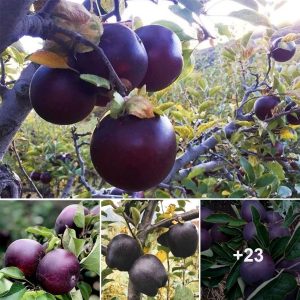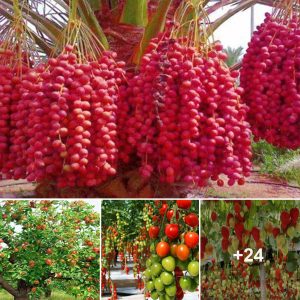Nestled within the boughs of deciduous trees, the custard apple, also known as na, emerges as nature’s velvety sweetness, enchanting both the eye and the palate. This delectable fruit, belonging to the Annona genus, graces orchards and markets with its enticing presence, promising a unique and indulgent experience for those fortunate enough to partake in its harvest.
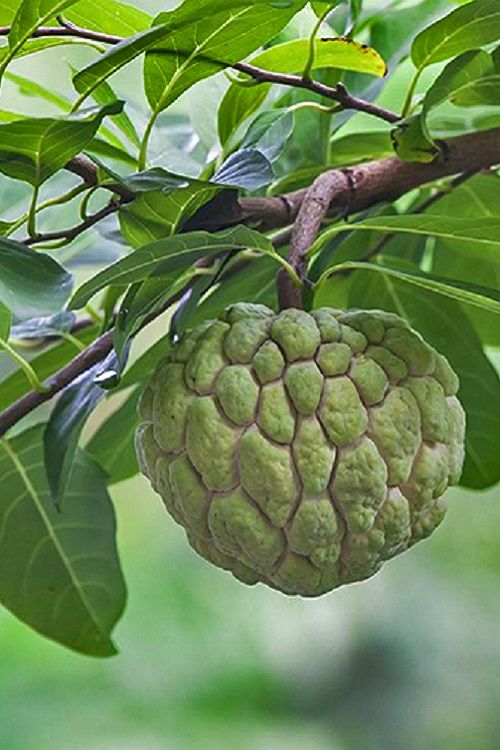
The custard apple tree, adorned with glossy green leaves, creates a lush and inviting canopy, offering shade to the clusters of fruit that hang like velvety treasures. As the custard apples ripen, their exteriors transform from vibrant green to a mottled, sun-kissed appearance, signaling the optimal moment to savor their creamy delights.
The journey of the custard apple begins as delicate flowers give way to small, promising fruit that gradually matures into the sumptuous, custard-like orbs synonymous with this tropical gem. The soft, textured skin yields to gentle pressure, revealing a creamy, ivory-colored interior punctuated with dark seeds, reminiscent of a sweet and velvety custard.
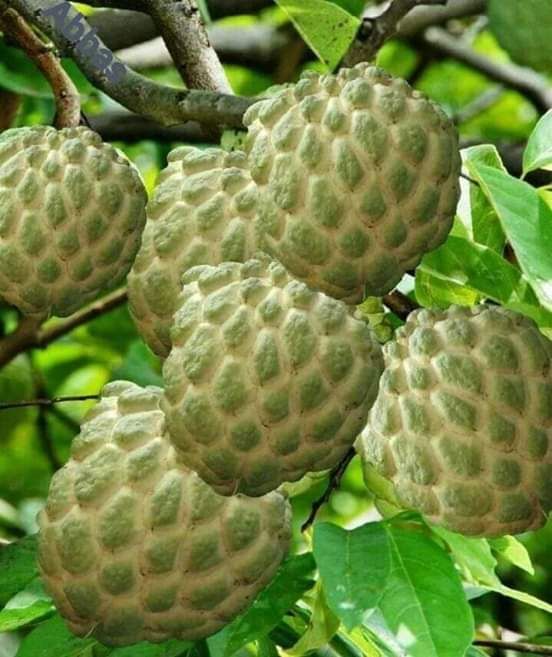
Upon indulging in a ripe custard apple, one experiences a symphony of flavors and textures. The luscious, melt-in-your-mouth flesh carries notes of sweetness with a hint of floral undertones, creating a unique taste that elevates the custard apple to a class of its own. Whether savored fresh, blended into smoothies, or incorporated into desserts, the custard apple’s flavor profile is a celebration of nature’s capacity to deliver pure indulgence.
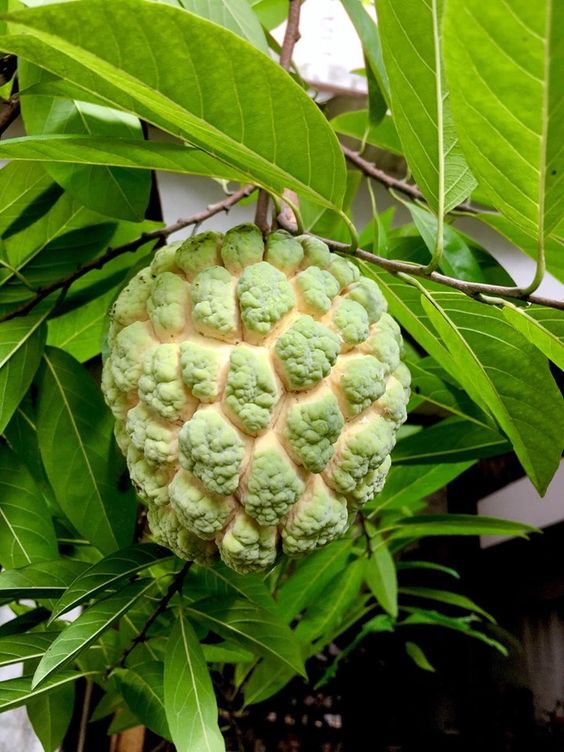
Culturally, the custard apple holds significance beyond its culinary attributes. In various traditions, it symbolizes abundance, prosperity, and the joys of tropical harvests. Its presence in local celebrations and rituals underscores the deep connection between the fruit and the cultural fabric of the regions it calls home.
In conclusion, the custard apple, with its velvety appearance and exquisite taste, stands as a testament to nature’s capacity to produce sensory delights. More than just a fruit, it is a symbol of tropical richness, cultural significance, and the inherent pleasure found in the simple act of savoring nature’s bountiful offerings.
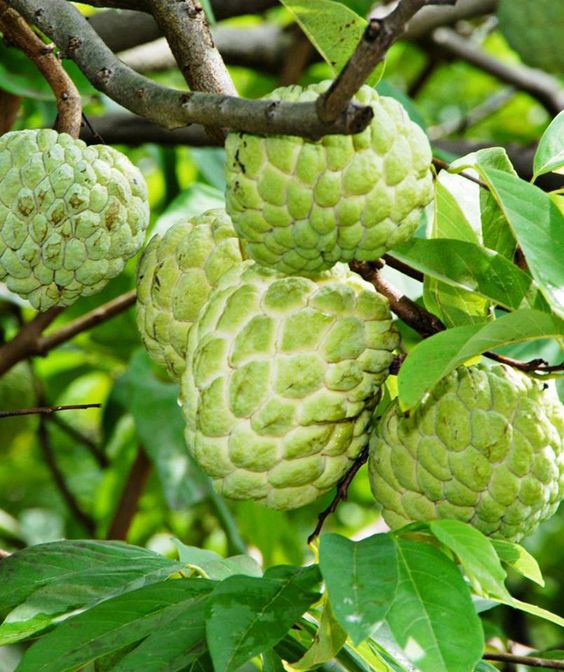
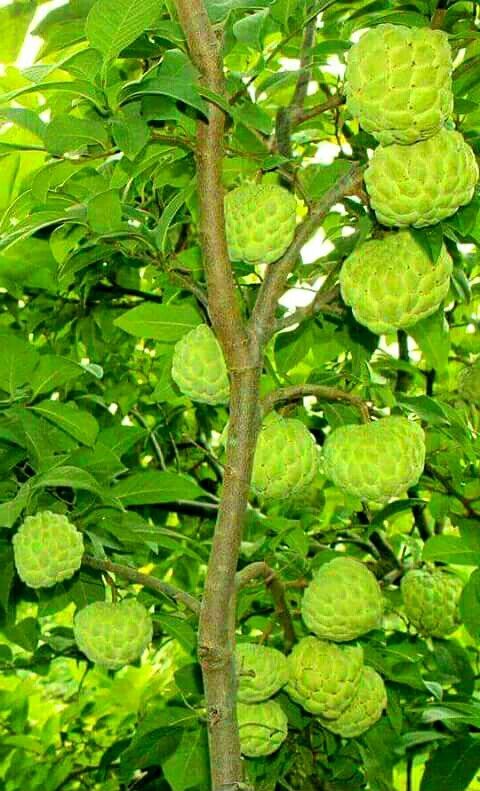
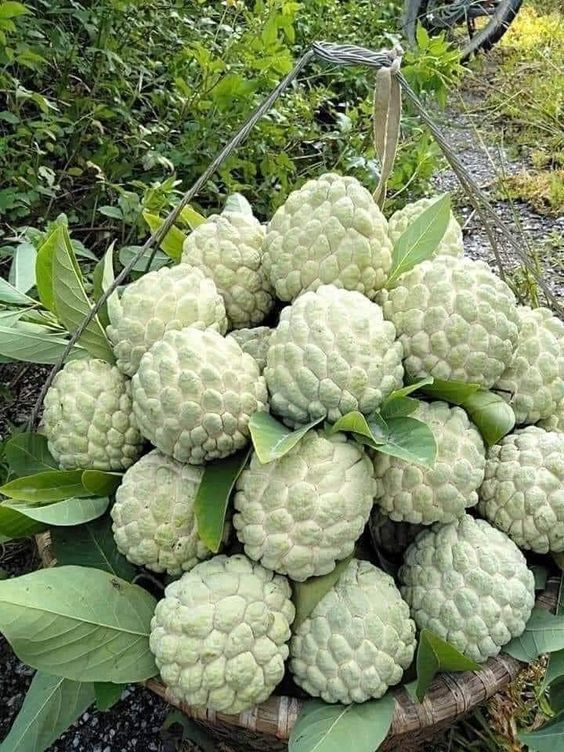
In conclusion, the banana stands as more than just a tropical delight; it is a golden treasure that transcends borders, cultures, and culinary preferences. From the nourishing sustenance it provides to the cultural symbolism it carries, the banana is a testament to the harmonious relationship between humanity and the abundant gifts of the natural world.
